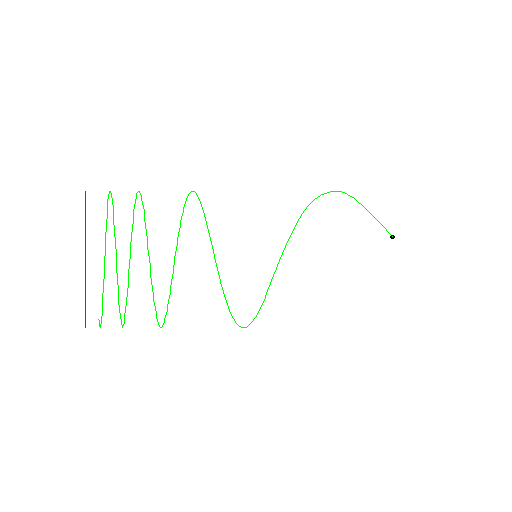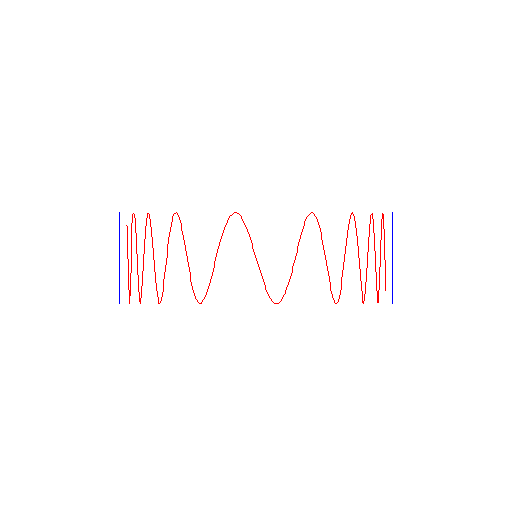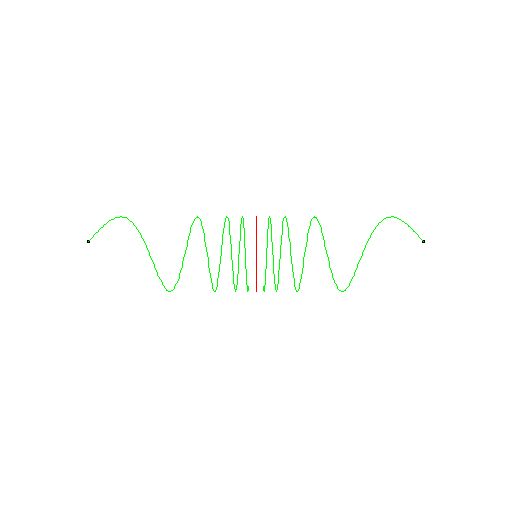




Next: Cantor organ and accordion
Up: Elementary examples
Previous: Elementary examples
The
(topologist's)
sin curve
 is defined by
is defined by
 is irreducible between points
is irreducible between points  and
and
 ,
,
 . It has exactly three
end points and two arc components.
. It has exactly three
end points and two arc components.
- It is one of the simplest arc-like continua.
- It is a compactification of a ray
![(0,1]$](img346.gif) with remainder an arc.
with remainder an arc.
- It has the periodic-recurrent
property [Charatonik et al. 1997b, Corollary 5.10, p. 117].
- The only possible confluent nondegenerate
images of
 are an arc and a continuum homeomorphic to
are an arc and a continuum homeomorphic to  [Nadler 1977a].
[Nadler 1977a].
- The hyperspace
 of all subcontinua of
of all subcontinua of
 is homeomorphic to the cone over
is homeomorphic to the cone over  [Nadler 1977b].
[Nadler 1977b].
See Figure A.
Figure 4.1.1:
( A ) sin curve
 |
There are many variations of the sin curve. Some of them are pictured below.
See Figure B-C.
Figure 4.1.1:
( B ) union of two sin curves
 |
Figure 4.1.1:
( C ) union of two sin curves
 |
Here you can find source files
of this example.
Here you can check the table
of properties of individual continua.
Here you can read Notes
or
write to Notes
ies of individual continua.





Next: Cantor organ and accordion
Up: Elementary examples
Previous: Elementary examples
Janusz J. Charatonik, Pawel Krupski and Pavel Pyrih
2001-11-30